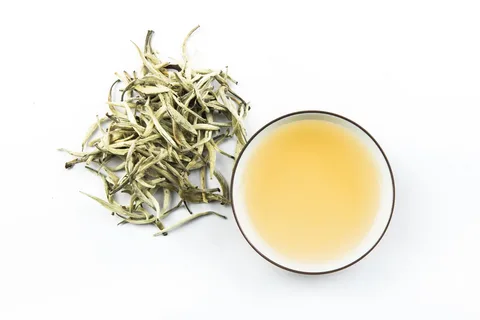Rich in Antioxidants
One of the most celebrated benefits of white tea is its high antioxidant content. Antioxidants are crucial in neutralizing free radicals, which are compounds that can cause oxidative stress and damage cells. The primary antioxidants in white tea are polyphenols such as catechins and epigallocatechin gallate (EGCG), which are also found in green tea but in different proportions. Regular consumption of white tea can help protect the body from the detrimental effects of oxidative stress, potentially lowering the risk of chronic diseases such as heart disease, diabetes, and cancer.
Supports Heart Health
White tea may have profound benefits for the heart. Studies have shown that the antioxidants found in white tea can help relax blood vessels, reduce inflammation, and improve the condition of the cardiovascular system. Consuming white tea regularly may help lower the risk of heart disease by reducing cholesterol levels, lowering blood pressure, and improving artery function. These benefits are primarily attributed to the high levels of flavonoids that improve endothelial function (the inner lining of blood vessels).
Promotes Skin Health and Aging
White tea possesses anti-aging properties not just due to its antioxidant levels but also because of its ability to protect against UV light and improve skin cell rejuvenation. It has been shown to prevent the breakdown of collagen and elastin, which are essential for maintaining firm, youthful skin. Additionally, some studies suggest that white tea extracts can reduce inflammation and improve recovery from some skin conditions when applied topically.
Aids in Weight Management
There is evidence to suggest that white tea can be beneficial in weight management. It contains catechins and caffeine, which have been shown to enhance metabolism and increase fat burning in some clinical studies. White tea’s effect on lipolysis (the breakdown of fat) and thermogenesis (calorie burning) makes it a suitable addition to a weight loss diet.
Improves Dental Health
The health benefits of white tea extend to improving dental health due to its high fluoride content, catechins, and tannins. These compounds can help strengthen teeth, combat plaque, and make the mouth less susceptible to bacteria and acid. The fluoride content particularly helps in hardening tooth enamel, thus reducing the risk of cavities.
Cancer Prevention
While research is still evolving, several studies have suggested that the antioxidants in white tea may also contribute to reducing the risk of cancer. Specifically, white tea extract has been shown to inhibit the growth of various types of cancer cells and may induce apoptosis (cell death) in malignant cells. The high levels of EGCG play a significant role in these anti-cancer properties.
Regulates Blood Sugar
Consuming white tea may help improve glucose tolerance and reduce blood sugar levels, which can be particularly beneficial for people with diabetes or those at risk. The antioxidant properties of white tea help in the modulation of insulin secretion and the reduction of inflammation, contributing to better blood sugar management.
Supports Immune Function
The antioxidants and flavonoids in white tea are excellent for supporting immune function. They enhance the immune system by protecting it against pathogens and reducing the risk of infection. White tea also possesses antibacterial and antiviral properties that can help ward off common illnesses like the flu and the common cold.
Reduces Inflammation
Chronic inflammation is linked to numerous diseases, including heart disease, Alzheimer’s, and certain cancers. White tea’s anti-inflammatory properties make it a beneficial drink for reducing systemic inflammation. Regular consumption can help mitigate the effects of chronic health issues related to inflammation.
Improves Mental Clarity and Reduces Stress
Finally, white tea can help improve mental clarity and reduce physical and mental stress thanks to its theanine content, a naturally occurring amino acid known for its calming effects on the brain. Theanine promotes relaxation without drowsiness and can enhance focus and attention.
Preparing White Tea
To fully benefit from white tea, it’s important to prepare it correctly. Use fresh, filtered water and heat it to just before boiling (around 75-85 degrees Celsius). Steep the tea leaves for 4 to 5 minutes. This allows the flavors to develop fully without releasing too much bitterness.
FAQs About White Tea
How often should I drink white tea to gain its health benefits?
Enjoying 2-3 cups of white tea daily can help you achieve its health benefits.
Does white tea contain caffeine?
Yes, white tea contains caffeine, but in amounts generally lower than black and green teas.
Can white tea help with sleep?
While it does contain caffeine, the lower amounts combined with high levels of theanine may help some people relax. However, sensitive individuals should avoid it close to bedtime.
Is white tea safe for everyone?
White tea is safe for most people, but those with caffeine sensitivities or certain health conditions should consult with a healthcare provider.
Can I drink white tea on an empty stomach?
Yes, white tea is generally mild enough to be consumed on an empty stomach.
How does white tea compare to green tea?
White tea is lighter in flavor and color, has a similar but often slightly higher antioxidant content, and typically contains less caffeine than green tea.
Are there any side effects of drinking white tea?
Consumed in moderation, white tea is not likely to cause adverse effects. However, due to its caffeine content, excessive consumption could lead to nervousness, sleep problems, or a rapid heartbeat.
In conclusion
white tea is not only a refreshing beverage but also a powerful source of health benefits. Whether you’re looking to improve your heart health, manage your weight, or reduce the risk of chronic diseases, incorporating white tea into your daily routine can be a delightful and health-promoting choice.
- Botox For Dimpled Chin In Maida Vale, London - May 9, 2025
- Can THC Soda Improve Mood? What Studies Say - May 9, 2025
- How Gaslighting Manipulates Emotions In Abusive Relationships - May 8, 2025


